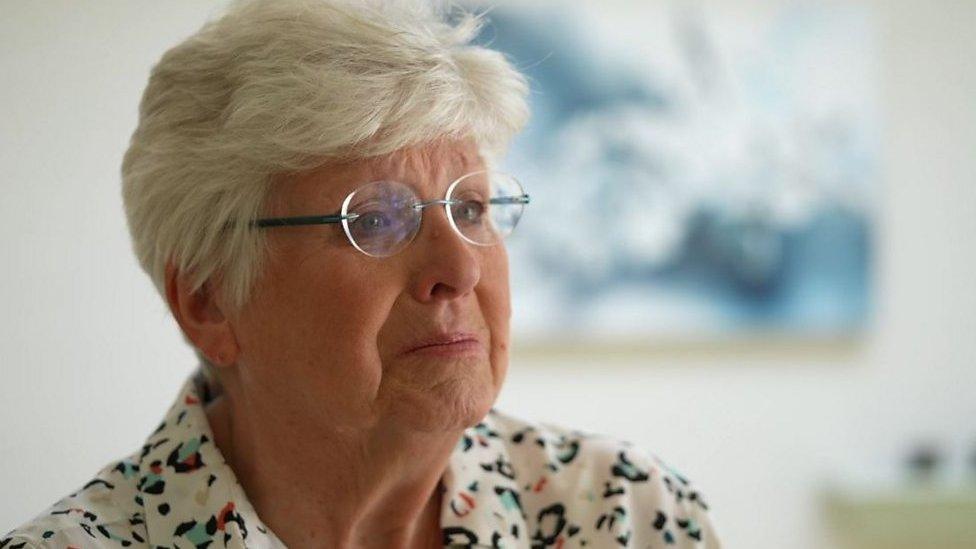St Monica's Kendal: 'My wife killed herself over church-home trauma'
- Published
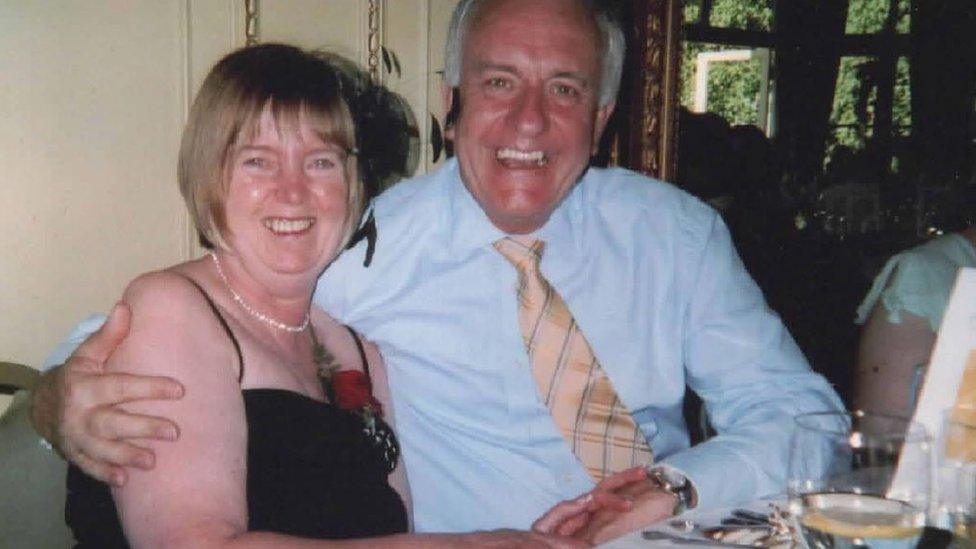
Stephen Hindley says his wife told him she was treated "very harshly" at St Monica's
In 2006 Stephen Hindley's wife Judith killed herself close to where her baby son was buried. He believes the "Dickensian" treatment she received at a church-run home for unmarried mothers in the 1960s and the lifelong trauma of the death of her son there, led to her suicide.
"I'm going to tell you something - and when I tell you, you won't want to see me anymore."
Mr Hindley said he remembers his wife saying those words, telling him that she was sent to an unmarried mother's home, as a teenager.
In 1963 and pregnant at the age of 17, her parents sent her to St Monica's in Kendal.
A Church of England home run by the Diocese of Carlisle, it was a place where teenage girls were sent to have their babies, away from view.
'She felt like she was a bad person'
Teenage pregnancy "was a disgrace in those days" Mr Hindley said.
He added Judith didn't like to talk about the home, but when she did she described a trauma that never left her.
"They were treated very harshly," Mr Hindley added.
"They were worked from morning until night - that's what she told me.
"That went right up until they gave birth. It was like something from a Dickensian novel - just awful."
Judith had given birth to her baby son - also named Stephen - in April 1964, but it soon became clear he was very unwell.
"She told me that she begged them to let the baby go to hospital," Mr Hindley said.
"But they wouldn't - they said he would be dealt with in-house. He lasted another 11 weeks."
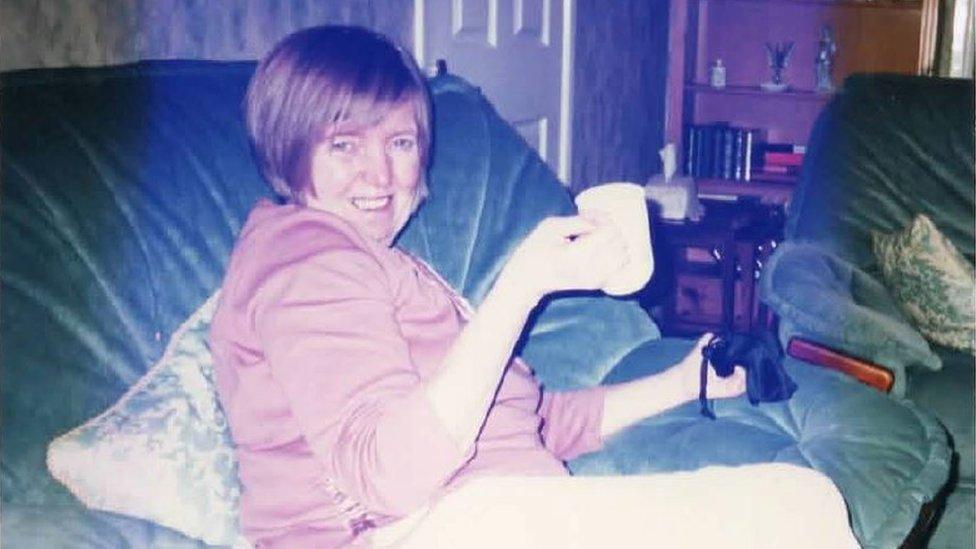
Judith Hindley's baby son died weeks after she gave birth
He said his wife's experience at the home, and the loss of her baby boy, was the trauma that led to her being diagnosed with bipolar disorder.
Over the years since she left the home, she attempted suicide several times.
Eventually her body was found in her car in Kendal - round the corner from where her baby was buried.
"She always felt guilty," Mr Hindley added. "She always felt like she was a bad person.
"In moments of despair she would say to me 'I don't know why you would want to be with a wicked girl like me'. That was ingrained in them from the home."

If you have been affected by any of the issues in this article, you can find details of organisations that can help via the BBC Action Line.

St Monica's was operated by the diocese from 1918 until its closure in 1970.
It was funded by public money through grants from local authorities who sent women and girls there.

Dr Michael Lambert said questions have been raised about St Monica's
Dr Michael Lambert, a research fellow at Lancaster University, has been studying unmarried mothers homes like St Monica's for years.
He said it is one of the worst homes he has come across.
"Even by the standards of the day, it was completely substandard.
"Its unique arrangement - being funded exclusively by local authorities - meant there wasn't enough money to go around.
"There were regular complaints about the standard of care - no trained midwives, lack of trained support," Dr Lambert said.
After his wife's death, Mr Hindley decided he wanted to buy the plot where her baby was buried, so he could lay her ashes with him.
But he discovered baby Stephen had been buried in an unmarked grave - and that he was unlikely to be the only baby there.
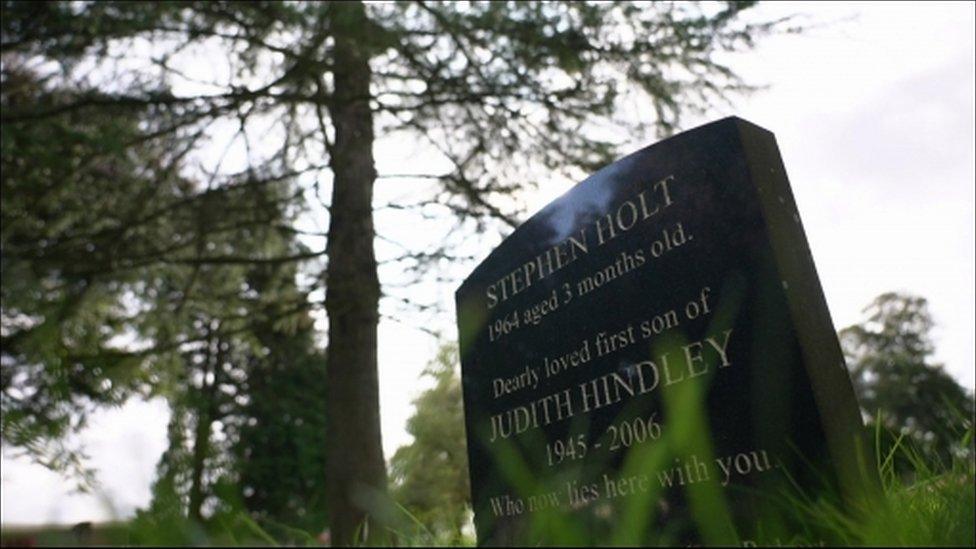
Mr Hindley paid for a headstone for Judith's baby son's previously unmarked grave
The BBC has been shown a letter sent to Mr Hindley by what was then South Lakeland Council - now Westmorland and Furness - warning him the site was used for "public burials" and that "other burials took place in this grave before Stephen's interment".
Dr Lambert has tried to find out more, but has not been able.
"In all likelihood and probability, there will have been other cases where babies died because of the poor care at St Monica's and they too would have been buried in an unmarked grave," said Dr Lambert.
He has applied to access restricted records held by Carlisle diocese about St Monica's, which could provide more information about deaths at the home. But says that so far he has been refused without explanation.
Many of the records kept about the home before 1965 are also missing.
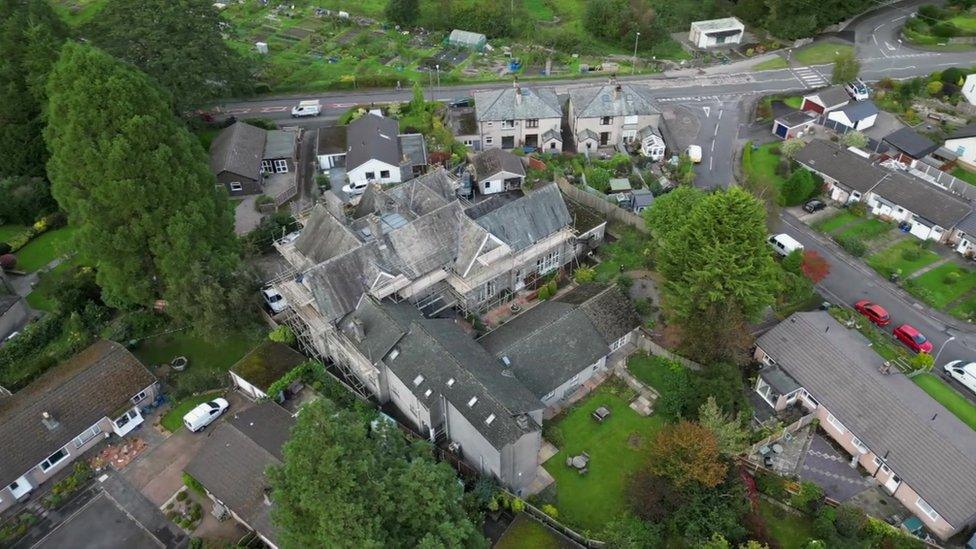
St Monica's was run by Carlisle diocese until it closed in 1970
In a statement, Carlisle diocese said: "It is shocking to learn of such mistreatment and we offer our sincere apologies and deepest sympathy to Mr Hindley and his family.
"We are committed to continue to work alongside Mr Hindley as he seeks answers and, furthermore, we are fully prepared to co-operate with other statutory agencies as necessary."
There is now a national campaign for the government to formally apologise to women who suffered in unmarried mothers' homes like St Monica's.
A government spokesperson said: "While we cannot undo the past, we have strengthened our legislation and practice to be built on empathy".
The BBC also contacted all councils who were historically involved in funding the home.
Westmorland and Furness and Cumberland councils gave a joint response saying they would "co-operate and work with other authorities" to help families "of relatives who may have spent time at St Monica's".
Lancashire County Council stated it was formed in 1974 from a previous authority.
A spokesman continued: "We cannot comment on specific cases but, in general, this means that Lancashire County Council in its current form did not 'place' individuals or otherwise fund 'placements' at St Monica's."
Carlisle diocese suggested that anyone who believes they or a relative spent time at St Monica's contacts safeguarding.adviser@carlislediocese.org.uk, while Westmorland and Furness Council said those affected can e-mail information.governance@westmorlandandfurness.gov.uk.

Follow BBC North East & Cumbria on Facebook, external, X (formerly Twitter), , externaland Instagram, external. Send your story ideas to northeastandcumbria@bbc.co.uk, external.
Related topics
- Published17 October 2023

- Published26 April 2023
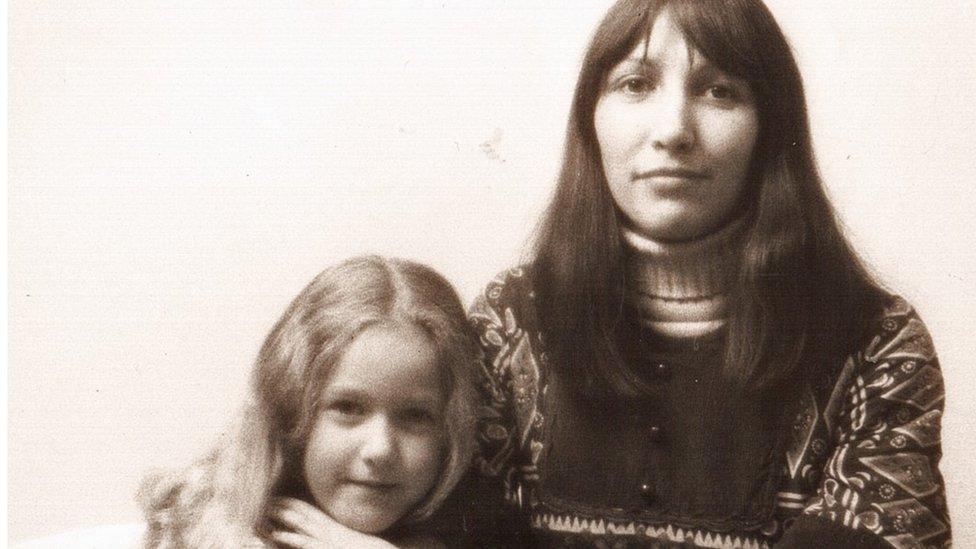
- Published15 July 2022
